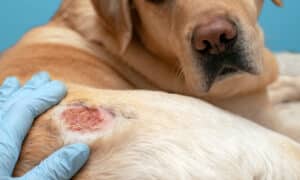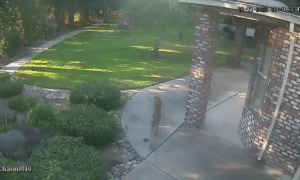“This post contains affiliate links, and I will be compensated if you make a purchase after clicking on my links.”
Giardia is a disease that not only affects dogs, but also cats. It is an illness brought about by parasites. Some dogs can be infected, but do not even display symptoms. However, those dogs with weaker immune systems are most likely to show symptoms, same goes for older dogs and puppies so information on canine Giardia is something all pet owners should be up to date on.
Information on Canine Giardia
Giardia trophozoites are protozoan parasites that are the cause of Canine Giardia, and can be caught by dogs by ingesting cysts with these Giardia trophozoites. The cysts are commonly found in fecal matter and in soil, and may survive in moist or wet environments for up to four weeks. Even cat feces contain such cysts, and your dog may be infected with this as well.
Information on canine Giardia includes observing the consistency of your dog’s stools. Diarrhea is the first noticeable symptom of dog Giardia. When your dog eliminates, the feces will have a very unpleasant odor and will contain fats. They may also have normal appetite but decrease weight because of the diarrhea. If the diarrhea gets severe, dehydration may occur to your pet.
In some cases, the Giardia-infected dog will not display any symptoms, which means that the dog may be a carrier of the disease. Through check-ups with your local vet, the parasite can be detected, and should be treated as early as possible so that your dog does not shed cysts that might infect other dogs. So beware and read information on canine Giardia, even if your dog does not show any signs or symptoms of Canine Giardia.
Continue to page 2…


















Kathy Baker
says:The flagyl will stop the diarrhea temporarily but it will return! It requires specific treatment to rid your dog of the parasite or it will return. Get your dog treated properly, please.
kris z
says:frankly if your dog ever has this and is diagnosed you will never need a diagnosis again because it is obvious. keep flagyl ( fenbendazole or metronidazole) on hand and give it immediately. it usually only takes a dose or 2 for it to end.